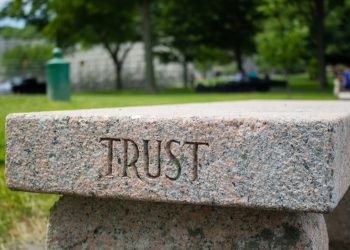No products in the cart.
Mastering the ‘Tell Me About Yourself’ Question
Learn how to effectively answer the 'Tell Me About Yourself' question in interviews with a structured approach and tailored examples.
New York, USA — The job interview is often a nerve-wracking experience. Among the myriad of questions you might face, one stands out as both pivotal and perplexing: “Tell me about yourself.” This seemingly simple prompt can set the tone for the entire interview. It’s your chance to showcase your professional journey, skills, and aspirations—all in a succinct narrative.
understanding the significance of this question is crucial. recruiters use it as a litmus test to gauge your communication skills, self-awareness, and cultural fit within the organization. According to a survey by HR Bartender, 90% of hiring managers agree that this question is critical in evaluating candidates. So, how can you nail it?

The Three-Part Structure: Past, Present, Future
To craft a compelling response, consider using a three-part structure: past, present, and future. This format allows you to create a cohesive narrative that highlights your journey and aspirations.
1. Past
Start with your background. Briefly discuss your education and relevant experiences that shaped your career path. For instance, if you graduated from the University of California, Berkeley with a degree in Computer Science, mention how that foundation equipped you with essential skills. If you’ve held internships at tech companies like Google or Microsoft, share what you learned there.
2. Present
Next, move to the present. Describe your current role and responsibilities. If you’re a software engineer at a startup, explain your contributions and the impact of your work. Highlight any achievements, such as leading a project that increased efficiency by 20%. This is your opportunity to showcase your value.
 Hiring Now
Hiring NowAI-Powered Robotics Transforming Agricultural Careers
AI robotics are revolutionizing agriculture, transforming labor roles and creating new career opportunities in the sector. Learn more about this…
Read More →If you’re a software engineer at a startup, explain your contributions and the impact of your work.
3. Future
Finally, pivot to the future. Outline your career aspirations and how they align with the company’s goals. If you’re interviewing for a position at a leading tech firm, express your desire to innovate within that space and contribute to transformative projects. This shows foresight and ambition.
Insights from Recruiters
What do recruiters specifically look for in your response? According to a report by Glassdoor, clarity and confidence are paramount. Recruiters appreciate candidates who can articulate their thoughts without rambling. Aim for a response that lasts about two minutes—long enough to convey your story, but short enough to keep their attention.
Moreover, authenticity matters. Recruiters want to see the real you. As Jennifer Smith, a hiring manager at Deloitte, notes, “We’re not just looking for qualifications; we want to understand the person behind the resume.” This means infusing your personality into your narrative. Don’t be afraid to share what drives you or a passion that fuels your career ambitions.
Lastly, tailor your response to the job description. If the role emphasizes teamwork, mention your collaborative experiences. If it’s about leadership, highlight instances where you took charge. This targeted approach demonstrates your suitability for the position.
Sample Responses for Different Career Stages
To illustrate this structure, here are three sample responses tailored for different career stages:
 Immigration
ImmigrationAustralia’s New Skills in Demand Visa: A Comprehensive Guide
Learn about Australia’s Skills in Demand Visa, designed to address labor shortages with simplified processes, reduced work experience, and clear…
Read More →Sample Responses for Different Career Stages To illustrate this structure, here are three sample responses tailored for different career stages:
- For Students:
“I’m currently a senior at the University of Florida, majoring in Marketing. During my time here, I’ve completed internships with local businesses where I developed social media strategies that increased engagement by 30%. I’m passionate about digital marketing and excited to pursue a role where I can help brands connect with their audiences effectively.”
- For Career Changers:
“After spending five years in finance, I realized my true passion lies in user experience design. I recently completed a boot camp at General Assembly, where I learned to create user-centered designs. I’m eager to combine my analytical skills from finance with my new design knowledge to enhance user experiences at a forward-thinking company.”
- For Experienced Professionals:
“With over ten years of experience in project management, I’ve led cross-functional teams at Fortune 500 companies like IBM and Accenture. My recent project reduced costs by 15% while improving delivery times. I’m looking to leverage my expertise in a senior role where I can drive strategic initiatives and mentor the next generation of leaders.”
Practice Makes Perfect
Crafting your response is just the beginning. Practice is essential. Rehearse your answer in front of a mirror or with a friend. This will help you refine your delivery and boost your confidence. Remember, the goal is not to memorize a script but to familiarize yourself with your narrative.
Additionally, consider recording yourself. This can provide insights into your body language and tone, which are just as important as the words you choose. A confident demeanor can enhance your message significantly.
 Career Development
Career DevelopmentNavigating the Return: Indian Government’s Support for Nationals Heading Back to the US
With a directive from the Indian government, missions are now tasked with aiding nationals returning to the US. What does…
Read More →Looking Ahead: Your Narrative as a Career Tool As you prepare for interviews, remember that your personal narrative is a powerful tool.
Looking Ahead: Your Narrative as a Career Tool
As you prepare for interviews, remember that your personal narrative is a powerful tool. It shapes how others perceive you and can open doors to opportunities. By mastering the “Tell me about yourself” question, you’re not just preparing for one interview; you’re equipping yourself for a lifetime of career conversations.
In today’s competitive job market, the ability to articulate your journey can set you apart. So, embrace your story, refine your delivery, and step into your next interview with confidence. The right opportunity is waiting for you.











